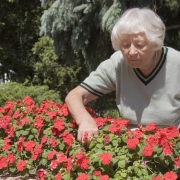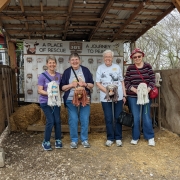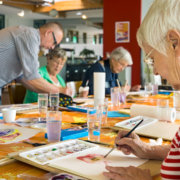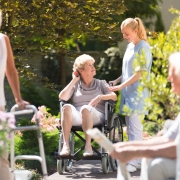Mother’s Day in Memory Assisted Living | Gifts & Activities
The celebration of Mother’s Day in memory assisted living facilities requires a delicate balance between honoring the memory of residents’ mothers and providing support for those who may be grieving. Activities can include reminiscence therapy sessions, where residents share stories and memories of their mothers, creating a comforting and nostalgic atmosphere.
The staff can also organize special memorial services or quiet moments of reflection for residents to pay tribute to their mothers who have passed away. Additionally, offering personalized keepsakes or handwritten notes can provide residents with a tangible connection to their mothers and solace during this emotional time.
Staff must be empathetic and understanding, acknowledge the varied emotions that Mother’s Day may evoke for residents, and provide compassionate support accordingly.
Mother’s Day Gifts for Memory Assisted Living Residents
If you are still unsure what kind of gift to prepare for Mother’s Day in memory assisted living, here are several suggestions.
- Throw pillow covers can add a personal touch to a bedside chair
- It is much better to have a popup paper bouquet than to have fresh flower arrangements because it is safer for those suffering from Alzheimer’s or dementia
- A non-see-through floral nightgown made of lightweight, breathable cotton is also a great idea to make mom feel more special
- Memory foam slippers with a non-slip rubber sole for mom can do wonders, particularly if it has a hook and loop strap that is easy to slip on and off
- You can hang small summer door wreaths on mom’s room door to add a personal touch to it, but it also helps residents identify their room much more easily
- Why not give mom a relaxing organic lavender hand and body lotion to help moisturize extra dry skin
Mother’s Day Activity Ideas
Aside from the gifts you can give Mom, you can also provide Mother’s Day activity ideas.
- Set up an ice cream parlor with tables and chairs inside your activity room, which can be a great delight for an ice cream party with senior mothers and their adult kids.
- Host a movie matinee inside your facility featuring movies about mothers
- You can also organize a bus trip to a local outdoor market, such as a farmer’s market or a huge garage sale, for adult children to shop with their moms
- A cooking class can also be a hit with moms and their adult kids during Mother’s Day
- You can organize a backyard picnic and send invites to adult kids to join their mothers in a facility’s backyard
- A midmorning walk with seniors and their children in the neighborhood can also be a fun event
- Organize a painting session outdoors by setting up canvasses, easels, and paint for mothers and their adult children to bond with each other
- Volunteer work can also be a great bonding time for mothers with their adult kids
- Set up your activity room into a fun spa to provide various nail polishes for your residents and their daughters
- Why not organize an afternoon tea party with moms dressed up in their Sunday best with their grownup kids
When small gifts may not be enough, why not give Mom the best day ever by celebrating Mother’s Day in memory assisted living with a ton of unique activities in mind?
Looking for excellent senior care in Nebraska? Click here to learn more about Rihcmont Senior Living!
Richmont Senior Living is proud to serve Ashland, NE and the surrounding cities: Memphis, Springfield, South Bend, Greenwood, Murdock, Waverly, Murdock, Ithaca, and Chalco











